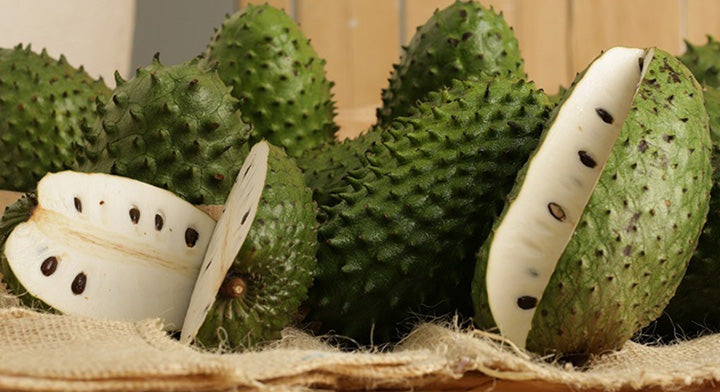Soursop is also known as graviola or annona muricata and grows on a tree native to the tropical forests of South America, Africa and Southeast Asia. In addition to the fruit, other parts of the tree are used in natural medicine such as the bark, seeds, leaves and roots.
SOURSOP AND CANCER
Much is said about the benefits of soursop in cases of cancer patients, ensuring that consuming it helps fight the disease. However, we must be very careful with information found on the internet that does not have proven scientific support.
But where do these claims about the effects of soursop against cancer come from? If there is one thing that is certain, it is that in the leaves of this fruit there are components known as acetogenins, which could have a direct action on cancer cells and destroy them without damaging other healthy cells and tissues.
Nature always surprises us. Now, it is soursop, a powerful antioxidant, whose properties go beyond curing cancer, since this fruit also known as graviola contains acetogenins, substances that have the ability to selectively inhibit the growth of cancer cells. and that of tumor cells.
This makes it a natural antitumor, therefore an ally in the fight against cancer. This was stated by Dr. Martha Villar, director of the EsSalud Complementary Medicine Program.
The specialist maintained that acetogenins, present in soursop - concentrated mainly in the leaves - are derivatives of the long chain of fatty acids that have direct action on cancer cells, which they destroy selectively, without damaging healthy cells and tissues. in addition to raising the immune system.
“Graviola or soursop has been known since pre-Hispanic Peru and has been traditionally used in cases of diabetes, rickets, colds, indigestion and intestinal parasitosis for its astringent, cleansing and digestive properties,” he noted.
In the same way, in vitro research has been carried out jointly by the Faculty of Pharmacy and Biochemistry of the Universidad Nacional Mayor de San Marcos and the Universidad Peruana Cayetano Heredia, in which it was shown that an ethanolic extract of annona muricata leaves (graviola or soursop) has a cytotoxic effect on altered (cancerous) cells in the gastric and lung mucosa.
All parts of the plant are used in natural medicine, including bark, leaves, roots and fruits, but the part that contains the highest concentration of active ingredients is the leaf, where Annonaceae acetogenins are found, widely studied since 1940 in It began to be used as an insecticide, surprising scientists for its broad power, without causing any harmful effects on animals or humans, which is why they agreed to fund research on its effects on humans.
It is also called soursop, soursop, catuche, catoche, anona from Mexico, graviola, anona from India, mole; giving it various uses, this is how its bark is used to reduce blood sugar levels in diabetic patients by regulating blood sugar.
Dr. Villar indicated that it allows the elimination of mites that cause asthma and bronchial diseases. Leaf tea improves liver function. Dried soursop seeds have been used in native communities to manage malaria and other parasites. Its fruit is used as an astringent in cases of diarrhea and to lower cholesterol levels.
“Acetogenins block energy generation for rapidly growing cells leading to the destruction of neoplastic cells. Another way is by inhibiting ubikinins that act in the repair of the cell membrane and do not facilitate growth, generating their death. However, its use must be regulated by a specialist because excessive consumption could cause Parkinson's disease," he concluded.
It'sHealth. (September 12, 2013) Soursop is an ally in the fight against cancer and diabetes, he asserts.
References:
Dr. Denisse Bretel M.
Medical head of outpatient treatment and integrative medicine. https://blog.oncosalud.pe/la-guanabana-la-fruta-con-mayores-beneficios-para-tu-saludIt'sHealth. At: http://www.essalud.gob.pe/la-guanabana-es-una-aliada-en-la-lucha-contra-el-cancer-y-la-diabetes-asevera-essalud/

